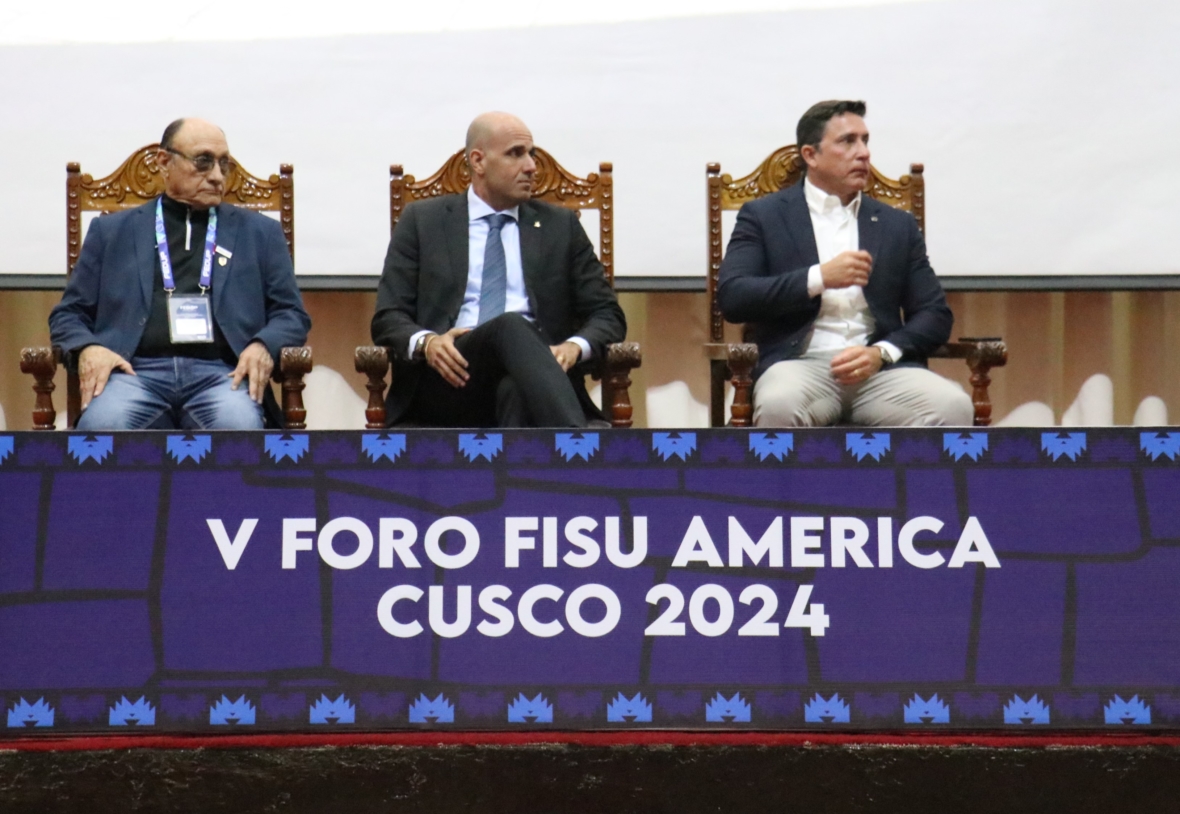The forum’s discussions underscored the need for concerted measures to create a more inclusive, innovative, and sustainable future in university sports
From 7 to 9 August 7 to 9, the 5th FISU America Forum took place at the Auditorium of the National University of San Antonio Abad in Cusco (UNSAAC). This significant event, organised by the International University Sports Federation, FISU America, the Peruvian University Sports Federation (FEDUP) who celebrated his 100th anniversary during this event, and UNSAAC, has become a pivotal gathering for the university sports community in Peru and across the Americas.
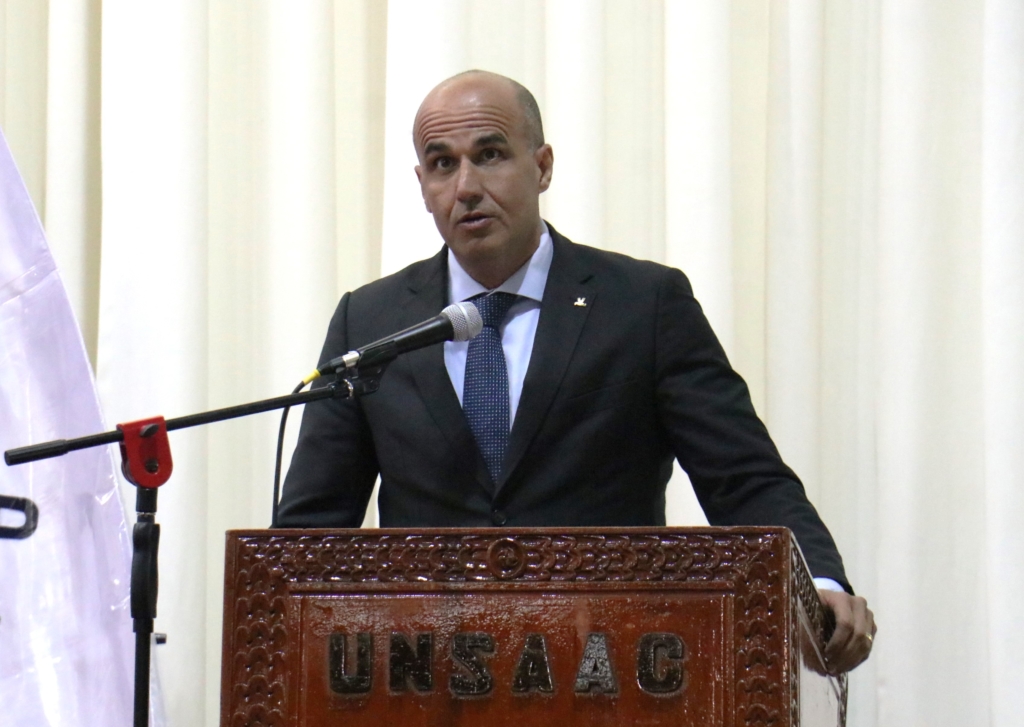
Over the three days of forum, approximately 200 participants from six countries representing more than 50 universities gathered to discuss the opportunities and challenges facing university sports in the region. The forum provided a platform for in-depth discussions on various topics, all aimed at shaping the future of university sports in the Americas.
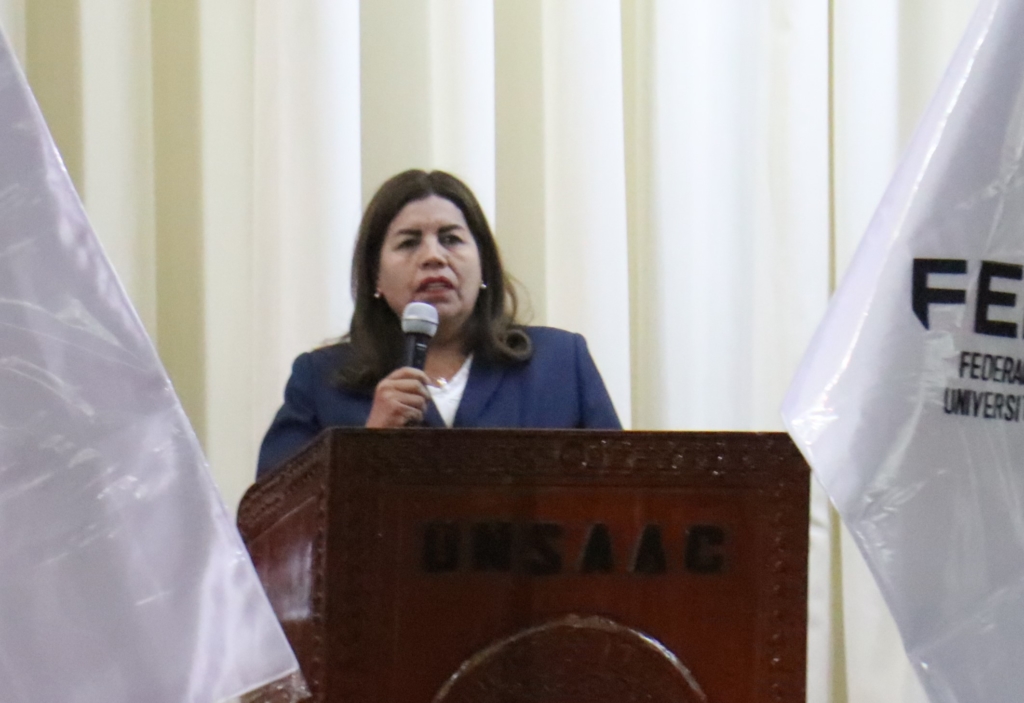
Roxana J. Abarca Arrambide, Director of Well-being at the National University San Antonio Abad del Cusco highlighted the importance of sports and well-being for the success of students’ academic integration.
Regional Cooperation: the path to a strengthened synergy
One of the key opportunities identified during the forum was the need to enhance regional cooperation among university sports federations. Strengthening this synergy is crucial for designing integrative inter-university programmes, facilitating knowledge transfer, and promoting collaborative events that enrich both educational and sports experiences. However, Alim Maluf Neto said that despite significant advances on the American continent, “the challenge remains in establishing effective mechanisms to guarantee the harmonious implementation of these collaborative initiatives”.
Innovation in management: leveraging emerging technologies
The forum also highlighted the importance of integrating emerging technologies and data analysis in the management of university sports. These tools are essential for optimising educational management and promoting equitable inclusion, ensuring universal access to sporting opportunities. However, the need to develop strategies that leverage these technologies to benefit all students and ensure equal access remains a significant challenge.
Inclusion and diversity: central to the forum
Sport for all, inclusion and diversity were central themes of the discussions. The forum emphasised the necessity of implementing pedagogical strategies that guarantee equal opportunities for all students, including para-athletes and minority groups. This focus on inclusion presents an opportunity to effectively integrate these groups into all sport and educational initiatives. The challenge, however, lies in creating and implementing policies that ensure inclusive and equitable participation, overcoming the barriers that currently limit the involvement of these groups.
Fernando Parente, Director of Development and Healthy Campus at FISU, drew attention to the relevance of implementing programmes to reach all groups and not leave anyone out through the implementation of well-being programs such as the FISU Healthy Campus.
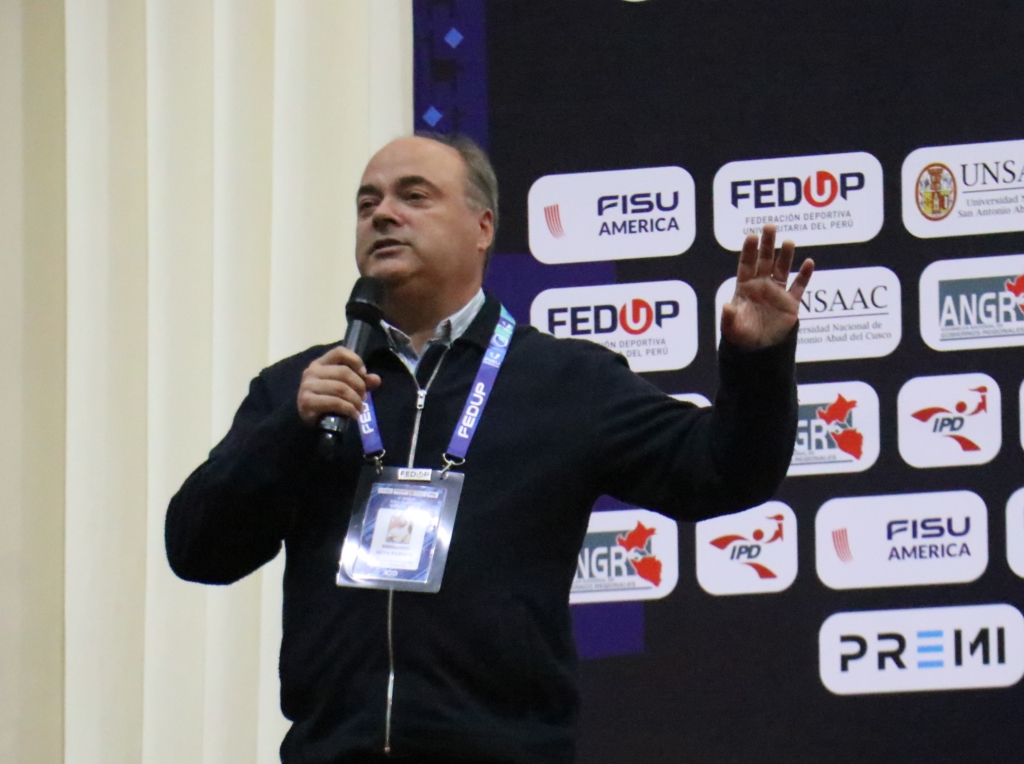
Holistic students’ development: a comprehensive approach
The importance of the holistic development of students was another key focus of the forum. Werner Salcedo Álvarez, the President of the National Assembly of Regional Governments and a prominent national political figure, emphasised the crucial role of universities in serving as comprehensive educational environments. He highlighted the “importance of these institutions in nurturing not only the academic and athletic abilities of students but also their socio-emotional development, thereby benefiting both students and society as a whole”. The opportunity here is to implement educational approaches that effectively integrate these dimensions, ensuring that each student receives the support needed for full development.
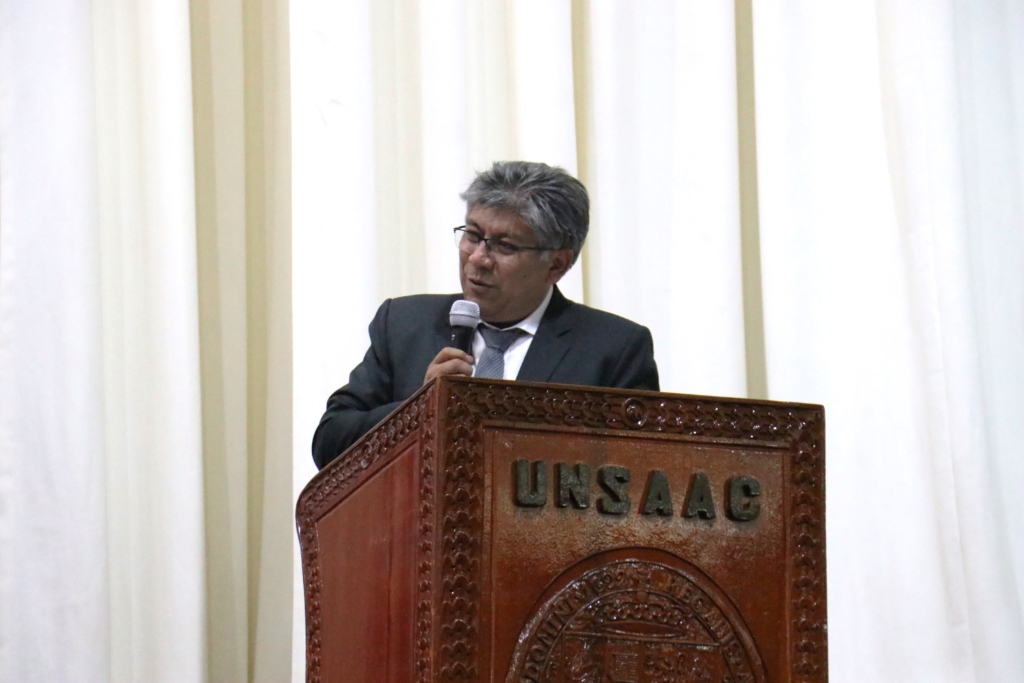
Mental health: a crucial component of student-athlete support
The forum highlighted the necessity of implementing psycho-educational interventions to support student-athletes and those engaged in physical activity. These interventions are vital for helping students balance their academic and athletic lives while receiving accessible psychological support. The challenge is to develop and offer psychological support programs that meet the emotional and mental needs of students, promoting a healthy balance between their responsibilities.
Alliances, marketing and sponsorship: strengthening financial support
Finally, the creation of alliances and sponsorship with the private sector was highlighted as a crucial opportunity to strengthen financial support and increase the visibility of university sports. Luciano Cabral, in his speech about marketing, said that “partnerships are essential to promote sustainability and provide valuable educational resources”. The challenge is to establish relationships and agreements that ensure continued financial support and enhance the infrastructure and resources available to university sport.
A vision for the future of university sports
The 5th FISU America Forum Cusco 2024 provided a comprehensive vision of the challenges and opportunities facing university sports in the Americas. The forum’s discussions underscored the need for concerted measures to create a more inclusive, innovative, and sustainable future in university sports.
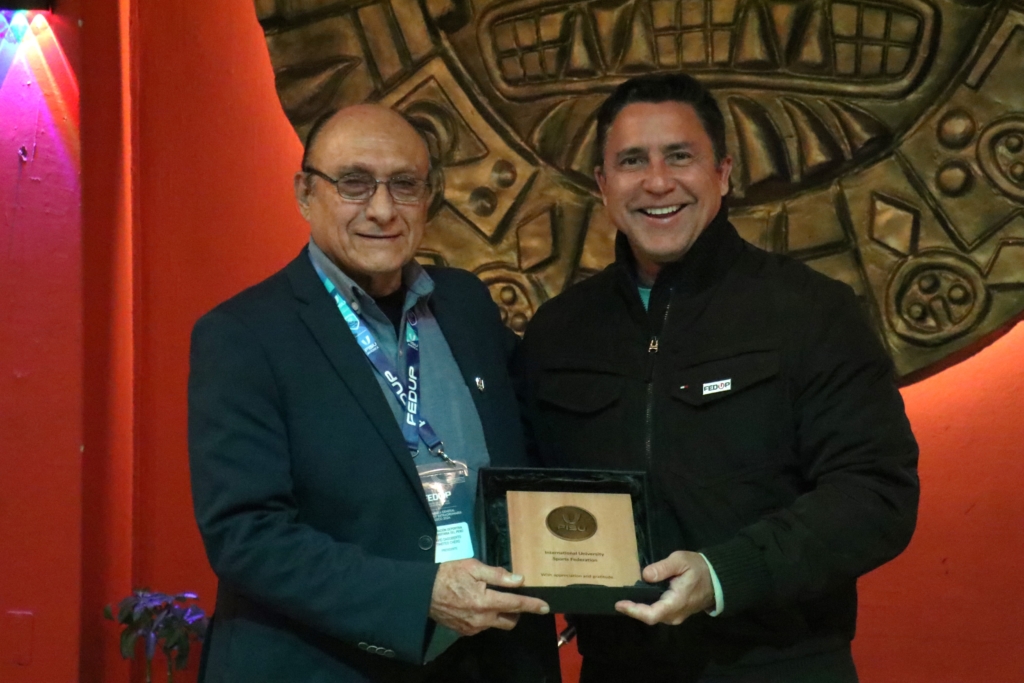
As societies face significant gaps and challenges driven by economic and cultural factors, the real challenge is to unite efforts among all institutions related to sports. Involving all sectors—from schools and universities to federations—is crucial to ensuring the practice of sports throughout life, creating an environment that guarantees the continued well-being of every citizen seeking an active, full, and healthy life.
To achieve these goals, it is essential to generate knowledge and develop effective strategies. Governments and societies must work together to value and support each individual, recognising their essential role in promoting collective well-being. By strengthening our commitment to sports education, we can ensure a positive and lasting impact, promoting active and healthy lives for all.
